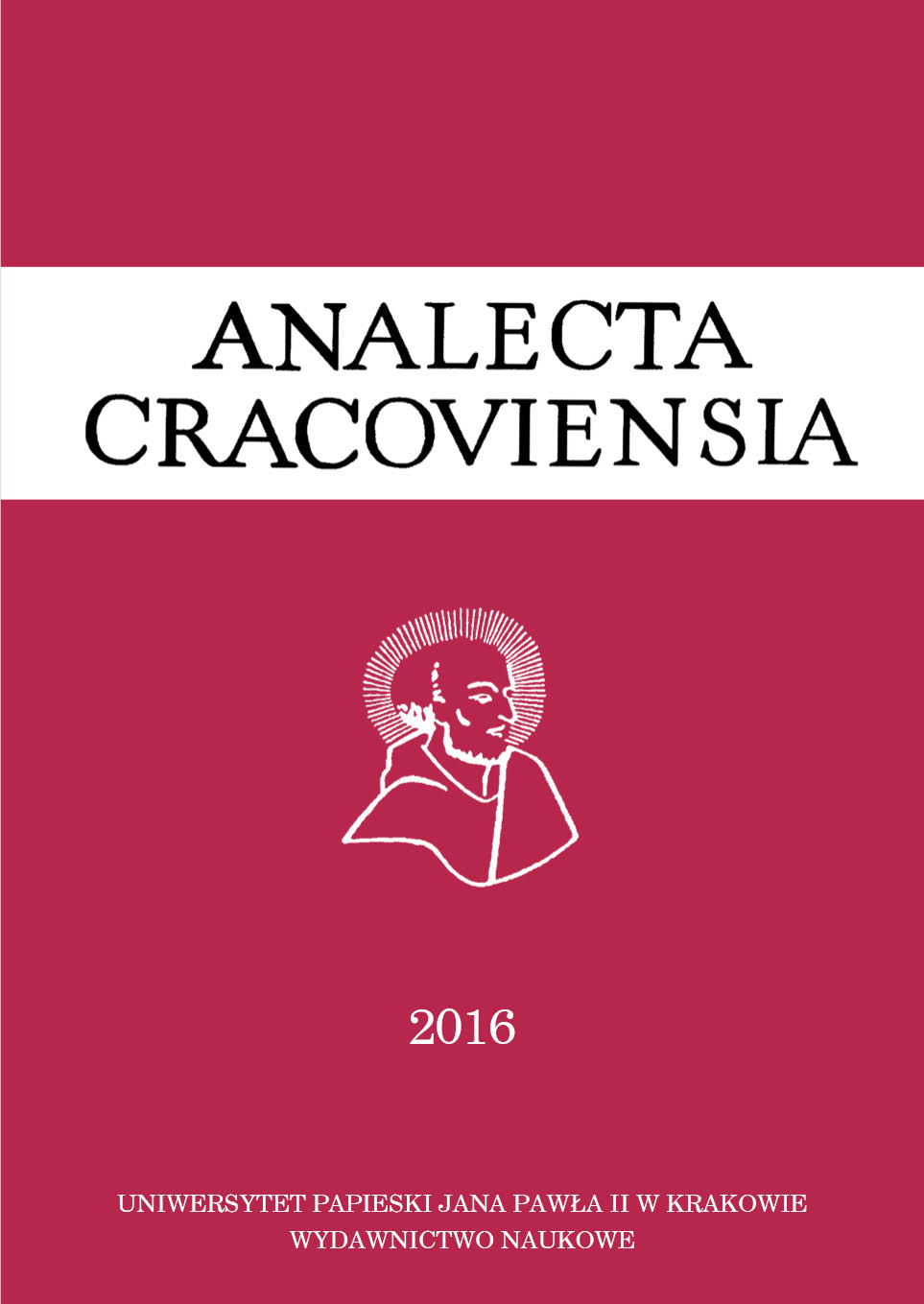Papal election and ministry in the documents of the council in Florence
DOI:
https://doi.org/10.15633/acr.2032Keywords:
council in Florence, conciliarism, election of the pope, duties of the Bishop of Rome, papal primacy, Eugene IVAbstract
This article aims to answer the question how the Florentine council defined the election of the Pope, his competence and importance in the conductivity of the Church and how his function influenced on overcoming conciliarism. The council showed the leading role of the pope over the universal Church and identified specific tasks and priorities of the Bishop of Rome, and the procedures the election of the Pope. In case of vacancy of the Holy See, which arise in the course of the meeting the council, election of a new bishop of Rome is to take place where at that time shall debate fathers. Before entering the conclave electors take the oath to God and the Church. The Pope is the first and the highest shepherd of sheepfold of Christ and therefore he has to be a person caring for the salvation of all souls and the advantage of the whole Christian world. The Bishop of Rome has strongly profess and preserve the Catholic faith, according to the Apostolic Tradition, the councils common and holy fathers. The Pope has to be aware of his function and ready for the greatest sacrifices in the service of God and the faithful, and he has to take care of conducting and directing the path of salvation, the clergy and the Roman people, and he has to repair and remove anything that could be tainted with simony or concubine. He can’t follow the ties of kinship and shall be available for the faithful.References
Bellitto C., 101 questions & answers on popes and the papacy, New York 2008.
Creighton M., The Council of Basel, London 2011.
Decretum Gratiani. Corpus Iuris Canonici, vol. 1, instruxit A. Friedberg, Leipzig 1879.
Dudziak J., Dziesięcina papieska w Polsce średniowiecznej, Lublin 1974.
Eubel C., Hierarchia catholica medii aevi, sive Summorum pontificum, vol. 2, Monasterii 1913.
Gill J., The Council of Florence, Cambridge 2011.
Hamennan N., The Council of Florence. The religious event that shaped the era of discovery, „Fidelio” 1 (1992) no. 2, s. 23–36.
Klimiuk W., Podatek kościelny. Idea, konstrukcja i recepcja w prawie polskim, Warszawa 2015.
Kumor B., Historia Kościoła, t. 4, Lublin 2001.
La Rocca O., Il conclave. Le procedure, i protagonisti, la storia, le curiosita, Milano 2005.
Mansi J. D., Sacrorum Conciliorum Nova et Amplissima Collectio, vol. 29, Paris 1901.
Melloni A., Das Konklave. Die Papstwahl in Geschichte und Gegenwart, Wien 2002.
Nowicki A., Prymat papieski na Soborze Florenckim i w Unii Brzeskiej, „Colloquium Salutis” 20 (1990), s. 135–152.
Pope Eugenius IV, Dudum sacrum, [w:] J. D. Mansi, Sacrorum Conciliorum Nova et Amplissima Collectio, vol. 29, Paris 1901, kol. 78–79.
Randall M., The Gargantuan polity, London 2008.
Sobór w Bazylei, [w:] Dokumenty soborów powszechnych, t. 3, układ i oprac. A. Baron, H. Pietras, Kraków 2003, s. 279–427.
Sobór we Florencji, sesja 6: Unia z Grekami, [w:] Dokumenty soborów powszechnych, t. 3, układ i oprac. A. Baron, H. Pietras, Kraków 2003, s. 459–477.
Sobór w Konstancji, [w:] Dokumenty soborów powszechnych, t. 3, układ i oprac. A. Baron, H. Pietras, Kraków 2003, s. 31–269.
Stieber J., Pope Eugenius IV, the Council of Basel and the secular and ecclesiastical authorities in the Empire, Leiden 1978.
Schatz K., Sobory powszechne, przekł. J. Zakrzewski, Kraków 2001.
Valois N., La crise religieuse du XVe siècle, Paris 1909.
Ziebart K., Nicolaus Cusanus on faith and the intellect, Leiden 2013.
Zepp-LaRouche H., Nicolaus of Cusa and the Council of Florence, „Fidelio” 1 (1991), no. 2, s. 17–22.
Downloads
Published
Issue
Section
License
Authors who publish with this journal agree to the following terms:
- Authors retain the copyright and full publishing rights without restrictions, and grant the journal right of first publication with the work simultaneously licensed under a Creative Commons Attribution 4.0 International License that allows others to share the work with an acknowledgement of the work's authorship and initial publication in this journal.
- Authors are able to enter into separate, additional contractual arrangements for the non-exclusive distribution of the journal's published version of the work (e.g., post it to an institutional repository or publish it in a book), with an acknowledgement of its initial publication in this journal.
- Authors are permitted and encouraged to post their work online (e.g., in institutional repositories or on their website) prior to and during the submission process, as it can lead to productive exchanges, as well as earlier and greater citation of published work (See The Effect of Open Access).

